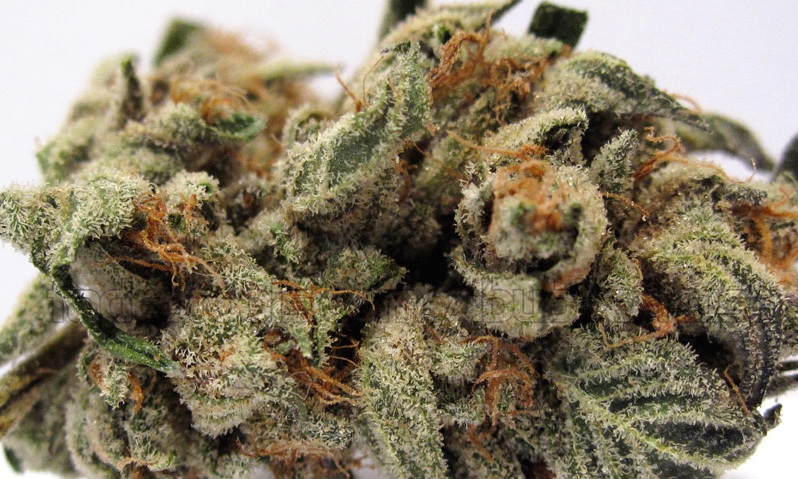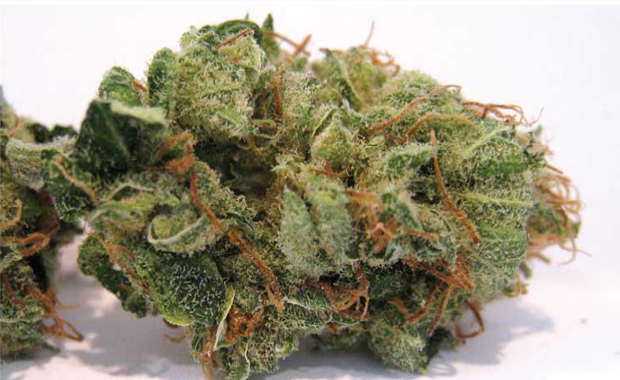
What is this law?
This law lets you know what is considered a debilitating medical condition, use of medicine, laws pertaining to possession, physician/ patient interaction and caregiver/ patient interaction.
0-4-287 – ARTICLE XVIII – Miscellaneous Art. XVIII – Miscellaneous
Section 14. Medical use of marijuana for persons suffering from debilitating medical conditions. (1) As used in this section, these terms are defined as follows:
(a) “Debilitating medical condition” means:
(I) Cancer, glaucoma, positive status for human immunodeficiency virus, or acquired immune deficiency syndrome, or treatment for such conditions;
(II) A chronic or debilitating disease or medical condition, or treatment for such conditions, which produces, for a specific patient, one or more of the following, and for which, in the professional opinion of the patient’s physician, such condition or conditions reasonably may be alleviated by the medical use of marijuana: cachexia; severe pain; severe nausea; seizures, including those that are characteristic of epilepsy; or persistent muscle spasms, including those that are characteristic of multiple sclerosis; or
(III) Any other medical condition, or treatment for such condition, approved by the state health agency, pursuant to its rule making authority or its approval of any petition submitted by a patient or physician as provided in this section.
(b) “Medical use” means the acquisition, possession, production, use, or transportation of marijuana or paraphernalia related to the administration of such marijuana to address the symptoms or effects of a patient’s debilitating medical condition, which may be authorized only after a diagnosis of the patient’s debilitating medical condition by a physician or physicians, as provided by this section.
(c) “Parent” means a custodial mother or father of a patient under the age of eighteen years, any person having custody of a patient under the age of eighteen years, or any person serving as a legal guardian for a patient under the age of eighteen years.
(d) “Patient” means a person who has a debilitating medical condition.
(e) “Physician” means a doctor of medicine who maintains, in good standing, a license to practice medicine issued by the state of Colorado.
(f) “Primary care-giver” means a person, other than the patient and the patient’s physician, who is eighteen years of age or older and has significant responsibility for managing the well-being of a patient who has a debilitating medical condition.
(g) “Registry identification card” means that document, issued by the state health agency, which identifies a patient authorized to engage in the medical use of marijuana and such patient’s primary care-giver, if any has been designated.
(h) “State health agency” means that public health related entity of state government designated by the governor to establish and maintain a confidential registry of patients authorized to engage in the medical use of marijuana and enact rules to administer this program.
(i) “Usable form of marijuana” means the seeds, leaves, buds, and flowers of the plant (genus) cannabis, and any mixture or preparation thereof, which are appropriate for medical use as provided in this section, but excludes the plant’s stalks, stems, and roots.
(j) “Written documentation” means a statement signed by a patient’s physician or copies of the patient’s pertinent medical records.
(2) (a) Except as otherwise provided in subsections (5), (6), and (8) of this section, a patient or primary care-giver charged with a violation of the state’s criminal laws related to the patient’s medical use of marijuana will be deemed to have established an affirmative defense to such allegation where:
(I) The patient was previously diagnosed by a physician as having a debilitating medical condition;
(II) The patient was advised by his or her physician, in the context of a bona fide physician-patient relationship, that the patient might benefit from the medical use of marijuana in connection with a debilitating medical condition; and
(III) The patient and his or her primary care-giver were collectively in possession of amounts of marijuana only as permitted under this section.
This affirmative defense shall not exclude the assertion of any other defense where a patient or primary care-giver is charged with a violation of state law related to the patient’s medical use of marijuana.
(b) Effective June 1, 2001, it shall be an exception from the state’s criminal laws for any patient or primary care-giver in lawful possession of a registry identification card to engage or assist in the medical use of marijuana, except as otherwise provided in subsections (5) and (8) of this section.
(c) It shall be an exception from the state’s criminal laws for any physician to:
(I) Advise a patient whom the physician has diagnosed as having a debilitating medical condition, about the risks and benefits of medical use of marijuana or that he or she might benefit from the medical use of marijuana, provided that such advice is based upon the physician’s contemporaneous assessment of the patient’s medical history and current medical condition and a bona fide physician-patient relationship; or
(II) Provide a patient with written documentation, based upon the physician’s contemporaneous assessment of the patient’s medical history and current medical condition and a bona fide physician-patient relationship, stating that the patient has a debilitating medical condition and might benefit from the medical use of marijuana.
No physician shall be denied any rights or privileges for the acts authorized by this subsection.
(d) Notwithstanding the foregoing provisions, no person, including a patient or primary care-giver, shall be entitled to the protection of this section for his or her acquisition, possession, manufacture, production, use, sale, distribution, dispensing, or transportation of marijuana for any use other than medical use.
(e) Any property interest that is possessed, owned, or used in connection with the medical use of marijuana or acts incidental to such use, shall not be harmed, neglected, injured, or destroyed while in the possession of state or local law enforcement officials where such property has been seized in connection with the claimed medical use of marijuana. Any such property interest shall not be forfeited under any provision of state law providing for the forfeiture of property other than as a sentence imposed after conviction of a criminal offense or entry of a plea of guilty to such offense. Marijuana and paraphernalia seized by state or local law enforcement officials from a patient or primary care-giver in connection with the claimed medical use of marijuana shall be returned immediately upon the determination of the district attorney or his or her designee that the patient or primary care-giver is entitled to the protection contained in this section as may be evidenced, for example, by a decision not to prosecute, the dismissal of charges, or acquittal.
(3) The state health agency shall create and maintain a confidential registry of patients who have applied for and are entitled to receive a registry identification card according to the criteria set forth in this subsection, effective June 1, 2001.
(a) No person shall be permitted to gain access to any information about patients in the state health agency’s confidential registry, or any information otherwise maintained by the state health agency about physicians and primary care-givers, except for authorized employees of the state health agency in the course of their official duties and authorized employees of state or local law enforcement agencies which have stopped or arrested a person who claims to be engaged in the medical use of marijuana and in possession of a registry identification card or its functional equivalent, pursuant to paragraph (e) of this subsection (3). Authorized employees of state or local law enforcement agencies shall be granted access to the information contained within the state health agency’s confidential registry only for the purpose of verifying that an individual who has presented a registry identification card to a state or local law enforcement official is lawfully in possession of such card.
(b) In order to be placed on the state’s confidential registry for the medical use of marijuana, a patient must reside in Colorado and submit the completed application form adopted by the state health agency, including the following information, to the state health agency:
(I) The original or a copy of written documentation stating that the patient has been diagnosed with a debilitating medical condition and the physician’s conclusion that the patient might benefit from the medical use of marijuana;
(II) The name, address, date of birth, and social security number of the patient;
(III) The name, address, and telephone number of the patient’s physician; and
(IV) The name and address of the patient’s primary care-giver, if one is designated at the time of application.
(c) Within thirty days of receiving the information referred to in subparagraphs (3) (b) (I)-(IV), the state health agency shall verify medical information contained in the patient’s written documentation. The agency shall notify the applicant that his or her application for a registry identification card has been denied if the agency’s review of such documentation discloses that: the information required pursuant to paragraph (3) (b) of this section has not been provided or has been falsified; the documentation fails to state that the patient has a debilitating medical condition specified in this section or by state health agency rule; or the physician does not have a license to practice medicine issued by the state of Colorado. Otherwise, not more than five days after verifying such information, the state health agency shall issue one serially numbered registry identification card to the patient, stating:
(I) The patient’s name, address, date of birth, and social security number;
(II) That the patient’s name has been certified to the state health agency as a person who has a debilitating medical condition, whereby the patient may address such condition with the medical use of marijuana;
(III) The date of issuance of the registry identification card and the date of expiration of such card, which shall be one year from the date of issuance; and
(IV) The name and address of the patient’s primary care-giver, if any is designated at the time of application.
(d) Except for patients applying pursuant to subsection (6) of this section, where the state health agency, within thirty-five days of receipt of an application, fails to issue a registry identification card or fails to issue verbal or written notice of denial of such application, the patient’s application for such card will be deemed to have been approved. Receipt shall be deemed to have occurred upon delivery to the state health agency, or deposit in the United States mails. Notwithstanding the foregoing, no application shall be deemed received prior to June 1, 1999. A patient who is questioned by any state or local law enforcement official about his or her medical use of marijuana shall provide a copy of the application submitted to the state health agency, including the written documentation and proof of the date of mailing or other transmission of the written documentation for delivery to the state health agency, which shall be accorded the same legal effect as a registry identification card, until such time as the patient receives notice that the application has been denied.
(e) A patient whose application has been denied by the state health agency may not reapply during the six months following the date of the denial and may not use an application for a registry identification card as provided in paragraph (3) (d) of this section. The denial of a registry identification card shall be considered a final agency action. Only the patient whose application has been denied shall have standing to contest the agency action.
(f) When there has been a change in the name, address, physician, or primary care- giver of a patient who has qualified for a registry identification card, that patient must notify the state health agency of any such change within ten days. A patient who has not designated a primary care-giver at the time of application to the state health agency may do so in writing at any time during the effective period of the registry identification card, and the primary care-giver may act in this capacity after such designation. To maintain an effective registry identification card, a patient must annually resubmit, at least thirty days prior to the expiration date stated on the registry identification card, updated written documentation to the state health agency, as well as the name and address of the patient’s primary care-giver, if any is designated at such time.
(g) Authorized employees of state or local law enforcement agencies shall immediately notify the state health agency when any person in possession of a registry identification card has been determined by a court of law to have willfully violated the provisions of this section or its implementing legislation, or has pled guilty to such offense.
(h) A patient who no longer has a debilitating medical condition shall return his or her registry identification card to the state health agency within twenty-four hours of receiving such diagnosis by his or her physician.
(i) The state health agency may determine and levy reasonable fees to pay for any direct or indirect administrative costs associated with its role in this program.
(4) (a) A patient may engage in the medical use of marijuana, with no more marijuana than is medically necessary to address a debilitating medical condition. A patient’s medical use of marijuana, within the following limits, is lawful:
(I) No more than two ounces of a usable form of marijuana; and
(II) No more than six marijuana plants, with three or fewer being mature, flowering plants that are producing a usable form of marijuana.
(b) For quantities of marijuana in excess of these amounts, a patient or his or her primary care-giver may raise as an affirmative defense to charges of violation of state law that such greater amounts were medically necessary to address the patient’s debilitating medical condition.
(5) (a) No patient shall:
(I) Engage in the medical use of marijuana in a way that endangers the health or well-being of any person; or
(II) Engage in the medical use of marijuana in plain view of, or in a place open to, the general public.
(b) In addition to any other penalties provided by law, the state health agency shall revoke for a period of one year the registry identification card of any patient found to have willfully violated the provisions of this section or the implementing legislation adopted by the general assembly.
(6) Notwithstanding paragraphs (2) (a) and (3) (d) of this section, no patient under eighteen years of age shall engage in the medical use of marijuana unless:
(a) Two physicians have diagnosed the patient as having a debilitating medical condition;
(b) One of the physicians referred to in paragraph (6) (a) has explained the possible risks and benefits of medical use of marijuana to the patient and each of the patient’s parents residing in Colorado;
(c) The physicians referred to in paragraph (6) (b) has provided the patient with the written documentation, specified in subparagraph (3) (b) (I);
(d) Each of the patient’s parents residing in Colorado consent in writing to the state health agency to permit the patient to engage in the medical use of marijuana;
(e) A parent residing in Colorado consents in writing to serve as a patient’s primary care-giver;
(f) A parent serving as a primary care-giver completes and submits an application for a registry identification card as provided in subparagraph (3) (b) of this section and the written consents referred to in paragraph (6) (d) to the state health agency;
(g) The state health agency approves the patient’s application and transmits the patient’s registry identification card to the parent designated as a primary care-giver;
(h) The patient and primary care-giver collectively possess amounts of marijuana no greater than those specified in subparagraph (4) (a) (I) and (II); and
(i) The primary care-giver controls the acquisition of such marijuana and the dosage and frequency of its use by the patient.
(7) Not later than March 1, 2001, the governor shall designate, by executive order, the state health agency as defined in paragraph (1) (g) of this section.
(8) Not later than April 30, 2001, the General Assembly shall define such terms and enact such legislation as may be necessary for implementation of this section, as well as determine and enact criminal penalties for:
(a) Fraudulent representation of a medical condition by a patient to a physician, state health agency, or state or local law enforcement official for the purpose of falsely obtaining a registry identification card or avoiding arrest and prosecution;
(b) Fraudulent use or theft of any person’s registry identification card to acquire, possess, produce, use, sell, distribute, or transport marijuana, including but not limited to cards that are required to be returned where patients are no longer diagnosed as having a debilitating medical condition;
(c) Fraudulent production or counterfeiting of, or tampering with, one or more registry identification cards; or
(d) Breach of confidentiality of information provided to or by the state health agency.
(9) Not later than June 1, 2001, the state health agency shall develop and make available to residents of Colorado an application form for persons seeking to be listed on the confidential registry of patients. By such date, the state health agency shall also enact rules of administration, including but not limited to rules governing the establishment and confidentiality of the registry, the verification of medical information, the issuance and form of registry identification cards, communications with law enforcement officials about registry identification cards that have been suspended where a patient is no longer diagnosed as having a debilitating medical condition, and the manner in which the agency may consider adding debilitating medical conditions to the list provided in this section. Beginning June 1, 2001, the state health agency shall accept physician or patient initiated petitions to add debilitating medical conditions to the list provided in this section and, after such hearing as the state health agency deems appropriate, shall approve or deny such petitions within one hundred eighty days of submission. The decision to approve or deny a petition shall be considered a final agency action.
(10) (a) No governmental, private, or any other health insurance provider shall be required to be liable for any claim for reimbursement for the medical use of marijuana.
(b) Nothing in this section shall require any employer to accommodate the medical use of marijuana in any work place.
(11) Unless otherwise provided by this section, all provisions of this section shall become effective upon official declaration of the vote hereon by proclamation of the governor, pursuant to article V, section (1) (4), and shall apply to acts or offenses committed on or after that date.
Enacted by the People November 7, 2000 — Effective upon proclamation of the Governor.









